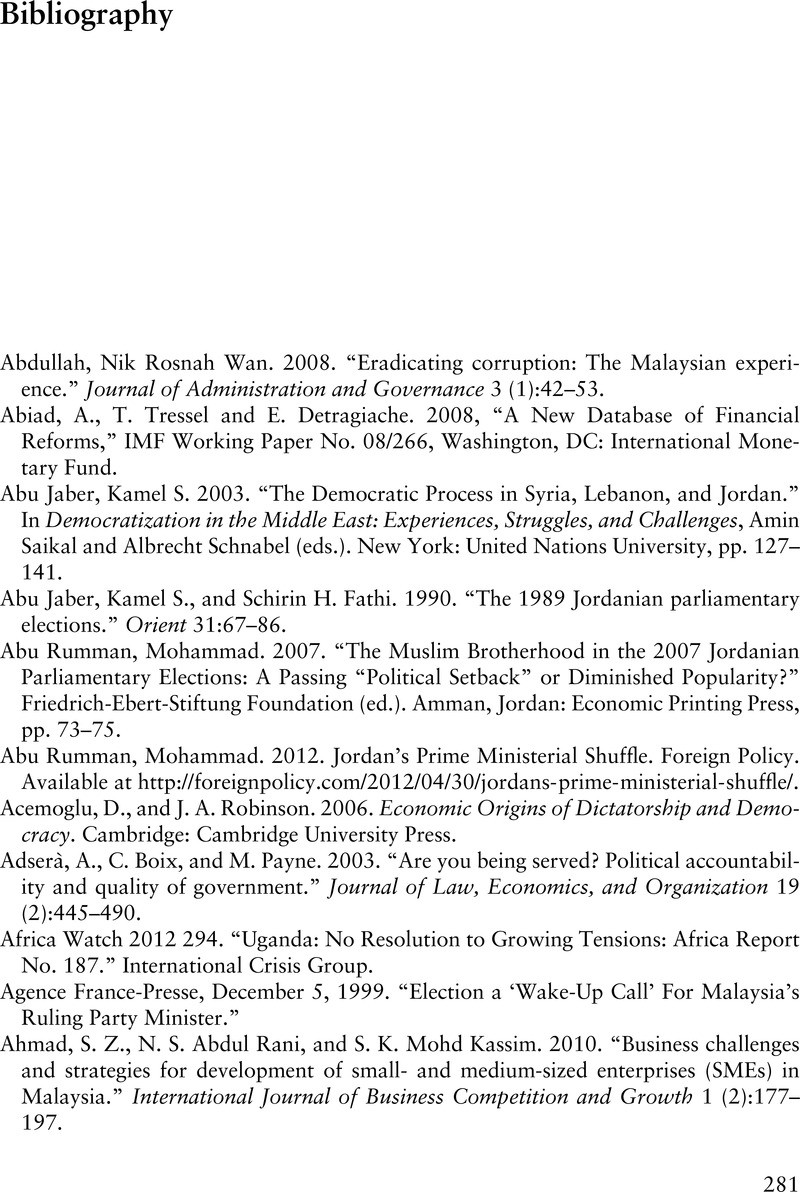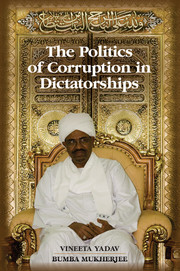Book contents
- Frontmatter
- Dedication
- Contents
- Tables
- Figures
- Acknowledgments
- 1 Introduction
- 2 Geographic Concentration and Political Mobilization by Small- and Medium-Sized Business Firms
- 3 SME Business Association, Multiparty Legislature, and Corruption
- 4 Geographic Concentration and National SME Association in Autocracies: The Empirical Evidence
- 5 Empirical Analysis of Legislative Institutions, SME Firms, and Corruption in Autocracies
- 6 Jordan: Institutional Change and Corruption
- 7 Malaysia: SME Mobilization and Corruption
- 8 Uganda: The Contrarian Case
- 9 Conclusion and Implications
- Appendix
- Bibliography
- Index
- References
Bibliography
Published online by Cambridge University Press: 18 December 2015
- Frontmatter
- Dedication
- Contents
- Tables
- Figures
- Acknowledgments
- 1 Introduction
- 2 Geographic Concentration and Political Mobilization by Small- and Medium-Sized Business Firms
- 3 SME Business Association, Multiparty Legislature, and Corruption
- 4 Geographic Concentration and National SME Association in Autocracies: The Empirical Evidence
- 5 Empirical Analysis of Legislative Institutions, SME Firms, and Corruption in Autocracies
- 6 Jordan: Institutional Change and Corruption
- 7 Malaysia: SME Mobilization and Corruption
- 8 Uganda: The Contrarian Case
- 9 Conclusion and Implications
- Appendix
- Bibliography
- Index
- References
Summary

- Type
- Chapter
- Information
- The Politics of Corruption in Dictatorships , pp. 281 - 314Publisher: Cambridge University PressPrint publication year: 2015



